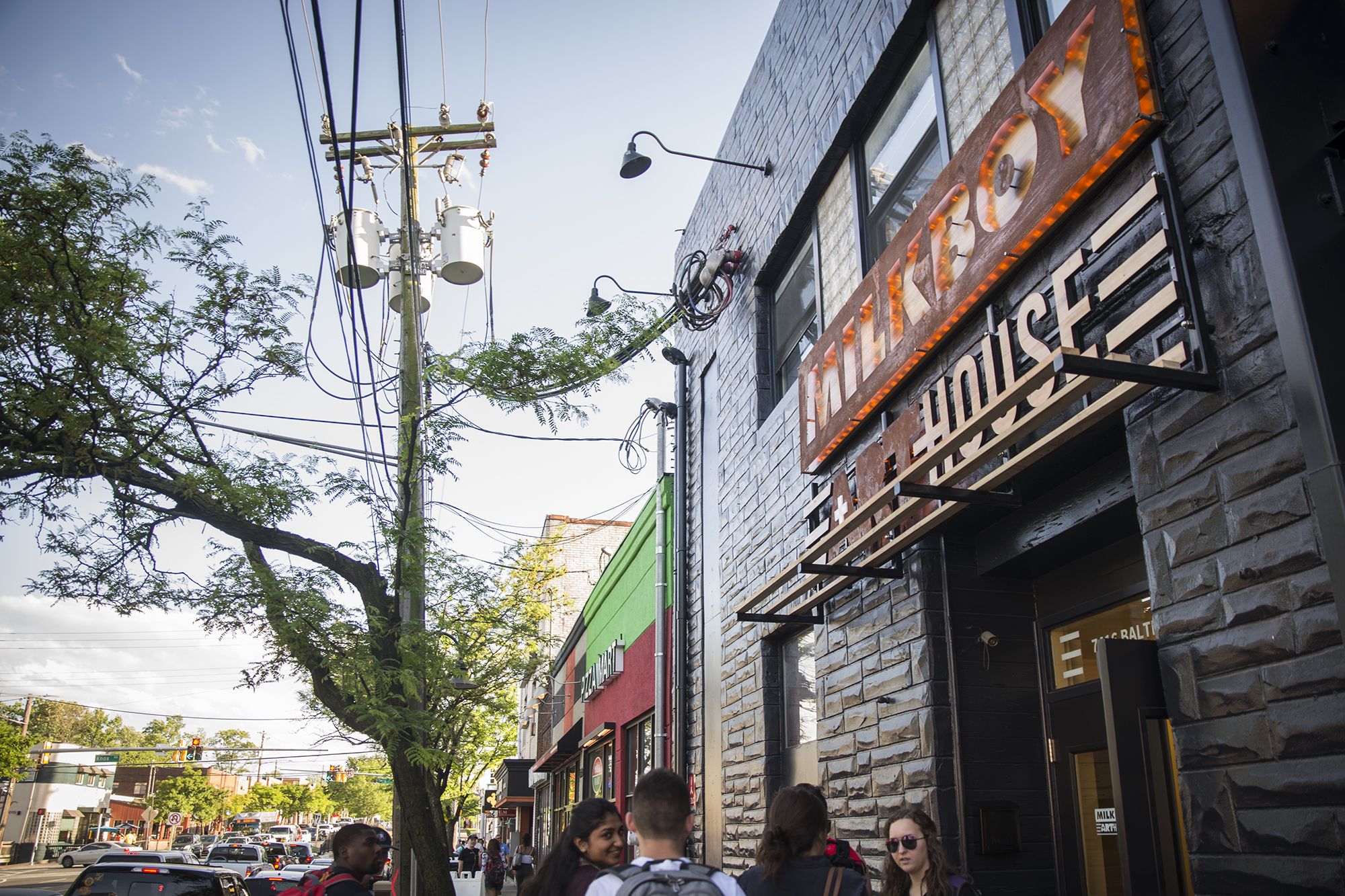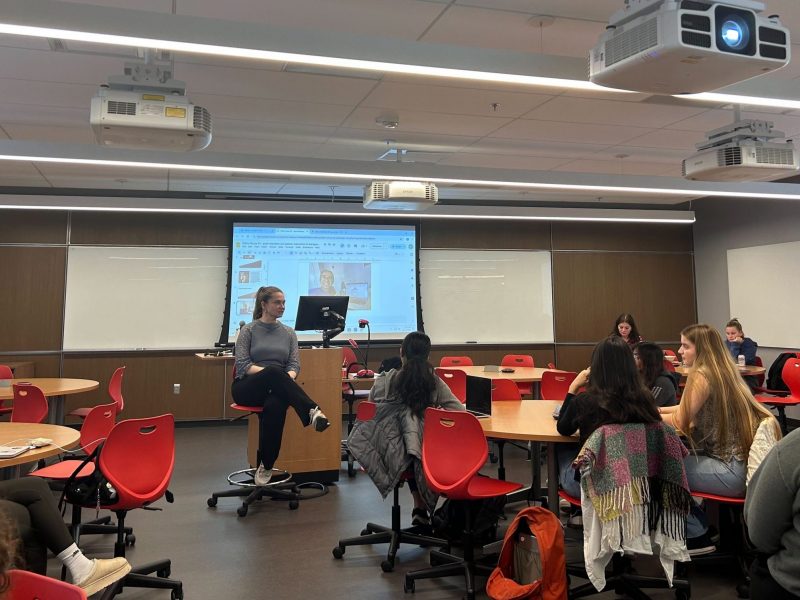By Adam Glass
For The Diamondback
Three University of Maryland doctoral students presented their research about water quality in the state, a substance called “super wood” and domestic violence among working women in India at a lively gathering at MilkBoy ArtHouse on Thursday.
GradTerp Exchange is a way for graduate students to improve their professional communication skills by sharing research with an engaged audience in a relaxed setting like a bar, said Linda Macri, the event’s creator and the director of academic and professional development in this university’s graduate school.
The exchange is modeled on “TED talks” and the “nerd nites” web series, which involve presentations on a specific topic, typically held in a bar.
Rianna Murray, a Toxicology and Environmental Health doctoral student, discussed water quality in private drinking wells in Maryland.
These wells are not the picturesque, “bucket-on-a-rope” stone cylinders that many people think of, Murray said. A modern well is just a capped pipe above the ground and may go as deep as 200 feet to reach the underground aquifer.
About one in five people in Maryland get their drinking water from private wells, primarily in rural counties, she said. Murray’s pilot study tested 118 wells for chemical and microbiological contaminants and found that 43.2 percent of the wells failed to meet at least one EPA standard for drinking water.
Martin Sanders, a public policy graduate student, asked whether contaminated wells have consequences for the broader community as well as the households that drink from the wells.
Only those who actually drink from the well may suffer health effects, Murray said.
Mechanical engineering doctoral student Upanmanyu Ray discussed his efforts to convert cellulose, the substance that makes up plant walls, into “super wood,” a material stronger than steel, aluminum and titanium alloys.
Super wood could be used to make wooden cars that are 60 percent lighter than standard cars, he said, adding that his research is being funded by car companies.
“Are you cutting down trees?” one attendee asked Ray, who said that he gets this question at every talk.
Making super wood does not require cutting down slow-growth forests, Ray said. Instead, fast-growing pine trees, wood from fallen trees or defective trees can be used as a raw material.
Shilpa Reddy, a sociology graduate student, detailed her work on the incidence of domestic violence among Indian women in the labor force.
Reddy asked the audience to close their eyes and imagine what it would be like if home was a scary place; if you were afraid to lie down on your bed or enter your bedroom and if the person you feared most in the world was your husband.
This terrible situation was a reality for women all over the world, Reddy said.
Reddy’s research shows that in India, working women experience more domestic violence than average. Homemakers who don’t work at all have the lowest rate of domestic violence exposure, while women who outearn their husbands have the highest rate.
One explanation for this is the backlash theory of abuse, Reddy said. Men with working wives may become more violent to counteract the increased power gained by women.
Fnu Shivangi, an information systems graduate student from India, said she attended Terp Exchange because she is trying to “do everything” to get the most out of her program while she is here.
Angela Ferelli, a plant science graduate student, said she was happy the university provides a forum for grad students from different colleges to get together and learn things, and called the talks “important, fabulous work.”



